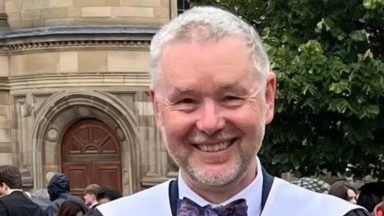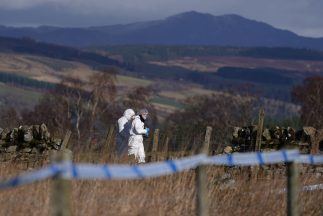Covid lockdowns are to blame for an increase in communication difficulties among children in Scotland, according to a report.
Since early January 2021, there has been an increase in speech, language and communication (SLC) developmental concerns recorded at health reviews for children aged 13-15 months, and 27-30 months compared to pre-pandemic levels, Public Health Scotland said on Thursday.
Researchers blamed lockdowns, and said it is “likely that the public health restrictions experienced by children in the critical early years have contributed to the increases in SLC developmental concerns that have been observed since early 2021”.
It comes after Scotland’s speech and language therapists warned of a looming crisis in children’s communication.
Public health measures implemented to prevent and control the spread of Covid-19 meant it was illegal for people to meet with others outwith their households.
Public Health Scotland found the restrictions limited children’s exposure to “language enriching environments”.
The head of the Royal College of Speech and Language Therapists (RCSLT) in Scotland said it was “mounting evidence of the spoken language crisis we currently face in Scotland”.
“We recently shared our own findings that almost 90% of practitioners in early years settings are seeing a rise in the number of young children experiencing speech, language and communication difficulties since the start of the pandemic,” Glenn Carter said.
“We are now seeing this claim backed up by Public Health Scotland’s health visitor data, with the largest increase in concerns recorded at two years old – a crucial milestone in speech and language development.”
Since January 2021, the percentage of children within the age ranges with new or previous SLC developmental concerns has consistently been above the pre-pandemic average.
This included rising concerns for relating to the “emotional/behavioural, personal/social and problem-solving domains” of those at the 27-30 month review.
The report said that although there is not yet data for childre aged four to five, early analysis suggested there had been an increased within this group too.
Amanda Wilson, from East Lothian, told STV News her young son Max babbled and formed some sounds before lockdown – but now he’s non-verbal.
The four-year-old is now being seen by professionals – but his mother says the wait while watching his condition worsen was challenging.
Mr Carter said having good spoken language was central to children’s literacy and numeracy skills and the longer-term impact on mental health, employment and life outcomes was equally important.
“We must consider this a public health issue and recognise that joint working across health, education and local government will be required to find a sustainable solution,” he said.
But it was not only in Scotland or the rest of the UK where similar declines in communication has been identified.
Researchers said a study in Ireland, which had similar social restrictions to the UK, found children born in the first three months of the pandemic “appeared to have some deficits in social communication compared to a historical cohort in a parental-reported assessment at 12 months”.
The Public Health Scotland report has recommended the Scottish Government makes efforts to ensure there are enough speech therapists to meet the higher demand for expert support.
It also said a national delivery plan should be developed, providing parents and teachers with tools to identify speech and language difficulties.
Scotland’s children’s minister Clare Haughey said: “We want to ensure that every child has the best possible start in life and that is why we will consider the findings of this report to better understand how we can improve speech and language outcomes for children.
“The Covid-19 pandemic and lockdown restrictions had an unprecedented impact on all public services, not just in Scotland but around the world, and we know that early learning and children settings were among those inevitably affected.
“Providing high-quality early learning and childcare is critical to supporting children to recover from the impacts of pandemic. ELC settings provide children with language-rich environments, access to specialist support, social interaction, and opportunities for play and outdoor learning.
“Scotland is the only part of the UK to offer the equivalent of 1,140 hours of funded early learning and childcare to all eligible children regardless of their parents’ working status, putting families and children first. That includes all three and four-year-olds and around a quarter of two-year-olds.”
Follow STV News on WhatsApp
Scan the QR code on your mobile device for all the latest news from around the country


 iStock
iStock























